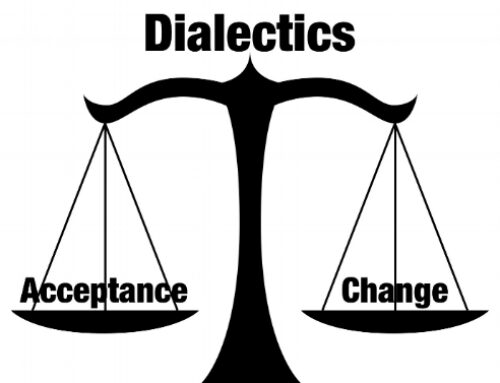When in a Disagreement, Separate the Person from the Issue
July 15, 2018
Categories: Conflict
When we are in the middle of a disagreement with someone, we have a bad habit of merging the person with the issue we disagree about. The person in front of us is no longer a complex human being with a variety of thoughts, opinions, and experiences. Instead, they become one with the issue you are discussing. For example, if we are disagreeing about a political topic like gun control, we merge our discussion partner with the issue. The human being in front of us becomes a “gun Nazi” or “destroyer of the constitution.”
Don’t Miss the Shared Humanity
Merging the person with the issue is a big mistake. When we do this, we fail to see all the other points of connection and shared humanity we have with the person in front of us. We might agree on 95% of things in life, but for now, because we have merged the person and issue, we couldn’t seem more different. When we move in this direction, we dehumanize our discussion partner. They are no longer a living, breathing, 3-dimensional human being, with a job, family, and favorite TV show. In our mind, they retract and become 1-dimensional, synonymous with the issue we are arguing about.
Dehumanization and Lack of Respect
Dehumanization leads to lack of respect. When we view someone as less than human, we don’t moderate our behavior like we would in our normal everyday interactions. We forget common courtesy. We don’t treat the other person with the dignity they deserve. We are more likely to be mean and even cruel. We lower our inhibitions.
Because dehumanization can be so damaging, it’s a good idea to do everything in your power to humanize the person you are having a discussion with. Get to know the person. Ask them about their families and children. Vary what you talk about. Talk about the issue you need to discuss, but also talk about the other 95% of life as well. Make it a priority to humanize the person in front of you, and separate the person from their opinion on the issue. Don’t merge the two.
Self as Content vs. Context
In Acceptance and Commitment Therapy (ACT), there is a key distinction between viewing the self as content and the self as context. Some people view the self (and others) as content. The self is equal to the content of a person’s thoughts, feelings, and opinions. This can be a rigid way of viewing the self and others. The alternative is to view the self (and others) as context. The self is a container for a person’s thoughts, feelings, and opinions. The person holds the content, but the person is distinct from the content.
I find this concept helpful to keep in mind when I’m discussing a contentious topic with someone whom I disagree with. I am not the sum of my political opinions. My discussion partner is not the sum of their political opinions either. We are both so much more than that. Keep your humanity at the forefront, separate the self from the issue, and you will be more likely to have a productive (and respectful) discussion.

Related Thoughts
No Comments
Leave A Comment

Subscribe To My Newsletter
Join my mailing list to receive the latest blog posts.
Receive my e-book “The Mental Health Toolkit” for free when you subscribe.






[…] and political disagreements with respect. We treat the other person as a human being, rather than conflating the person with their position. We aim for conversations rather than conversions. We respect the fact that individuals have the […]